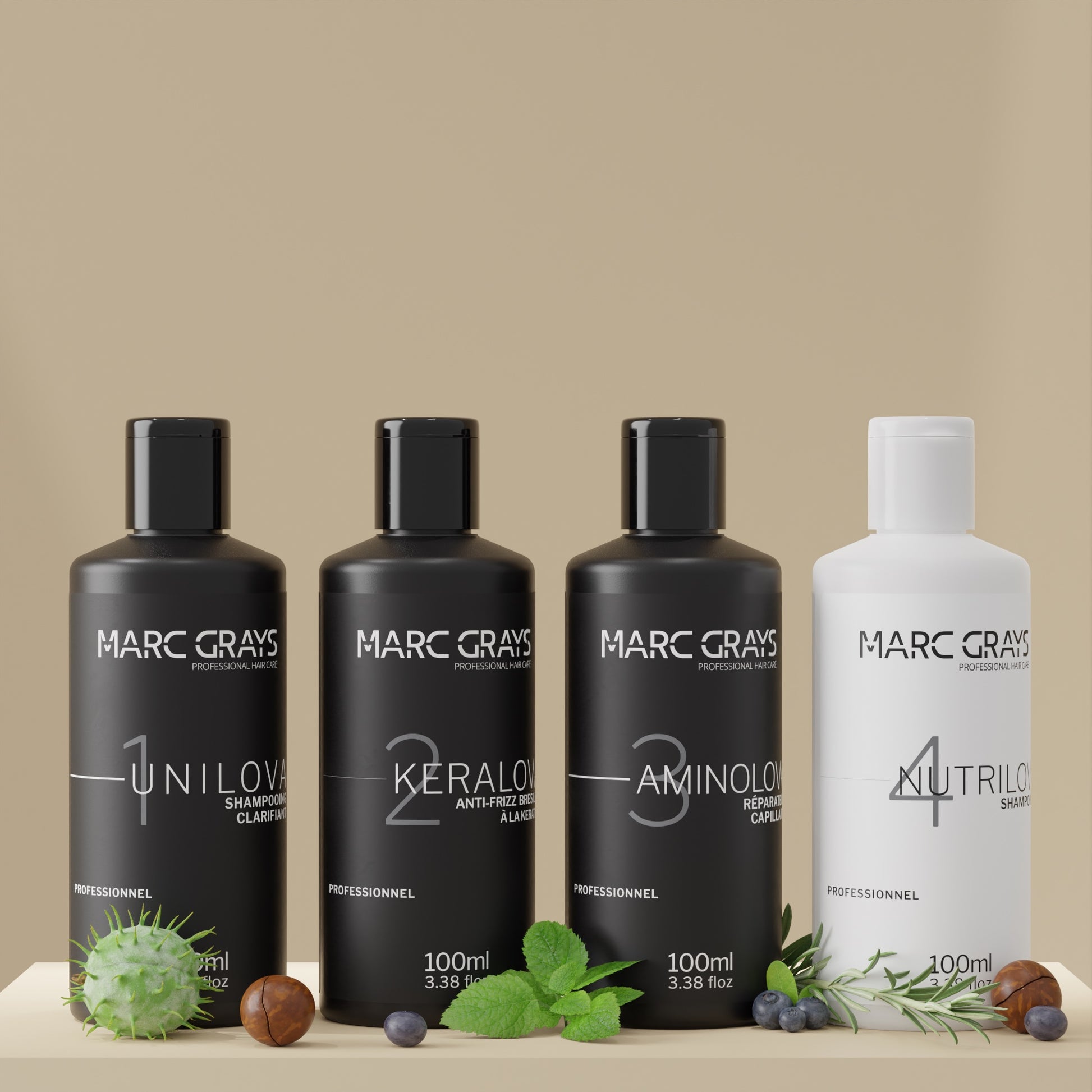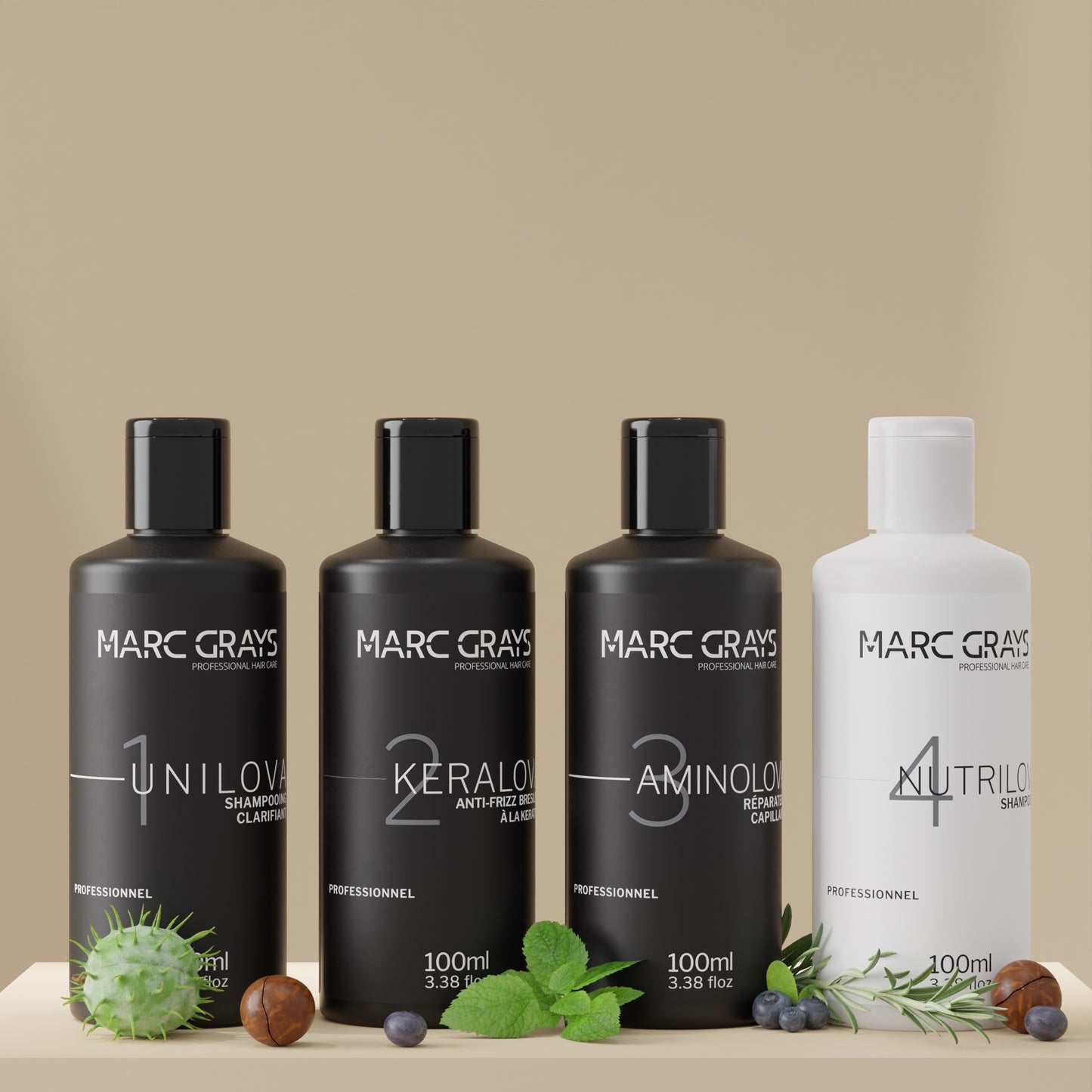The Walker scale is a widely used tool for classifying hair . Specialists use it as a guide in developing hair care. According to this scale, hair type 4c corresponds to frizzy hair. It is dry with tight curls.
Andre Walker's Ladder
Andre Walker is a renowned hairstylist who has won many awards for his work. The hair classification system he developed is authoritative. It classifies hair based on two characteristics: texture and thickness. Texture types are numbered from 1 to 4, while thickness is associated with letters. According to this system, curly and dry, frizzy hair is classified as 4c.
Characteristics of 4c hair
4c hair is kinky hair that has fluffy strands. The curl pattern is not well defined. 4c hair has a variable texture, which can be extremely fine or even coarse. This means that the appearance of this hair type can be very different from one head to another.
4c hair is relatively tight and natural oils have a hard time traveling to the ends of the strands. When hair is not cared for with oils, it tends to become dry and brittle. With its tight texture, it shrinks considerably when wet. An afro that is wet undergoes an almost instant transformation. People with this hair type really appreciate this ease of transformation.
One way to identify 4c hair is to wash it and let it air dry to see how it reacts. You can then see the shape and size of the curls and determine if it is indeed this category. To properly identify a hair type , it must not have been treated with other chemicals at the time of washing. It should be noted, however, that two different textures can be neighbors.
If the pattern is not visible, it is because the strands are tightly packed when the hair is natural. This condition corresponds to category 4c. The textures of type 4 hair in general are similar in some ways. Despite these similarities, each category needs special care. Their identification is therefore very important.
4c hair has tighter curls than 4a and 4b hair types. It is also the most fragile. It is vulnerable to both humidity and dryness. Therefore, it needs to be well protected. The common point for type 4 hair is that hydration is essential for the hair to be full and healthy. 4c hair type is the one that needs good hydration the most.
Necessary care
Type 4c hair is particularly tricky to treat. However, care is not that difficult to provide. You just need to know how to go about it. You have to take into account the texture, porosity and thickness.
When cleaning your hairstyle, you should distribute moisturizing oils to preserve your hair. Coconut oil or jojoba oil are very effective for 4c hair. You can also make a mask with banana, honey and oil. These are three products that stimulate moisture and hydrate your hair. They also help to enhance its natural shine.
To moisturize well, it is also recommended, after washing your hair, to apply a generous layer of leave-in conditioner. After which, simply apply your favorite oil to the scalp and strands.
Since 4c hair is fragile, care must be taken to prevent hair loss. There are several precautions to take. It is best to detangle it with your fingers and not with a brush, which could damage it. A diet rich in protein is also necessary. Some factors that affect hair loss are not controllable, such as stress and age.
To properly treat this type of problem, it is necessary to determine its causes. Perhaps the hair tends to break because it is handled too much. It may also be damage caused by inadequate hair products. Even coloring can in some cases weigh down the hair.
The heat
Heat is also likely to cause breakage in 4c hair, so avoid it if possible. Heat styling tools can cause damage. Use styling products at a low temperature to avoid damage. Heat removes moisture that 4c hair needs.
Hair also needs special attention at night. Sleeping with a satin bonnet , for example, is an effective way to protect your hair. It prevents moisture from being absorbed by the pillowcase. This moisture is retained by your hair. Your hair is healthier when you wake up.
A satin scarf can also be very useful during the night. It also prevents moisture from being absorbed by the pillowcase which tends to dry out the hair. In the morning, there will be no frizz.
To properly care for 4c hair, it is also important not to use small toothed combs. Fingers are not always able to comb the hair well, so it is better to take a wide-toothed comb and use it to gently comb the hair.
There are several products that have been designed specifically for 4c hair. They can help maintain and grow hair. When choosing, keep in mind that hydration is the most important consideration in hair care. Therefore, products should help retain moisture.
Shampoos should be used sparingly. Sulfate-free shampoos should be preferred. They will clean the hair without altering the natural oils.









